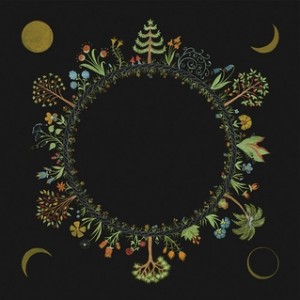The Long Island native, singer-songwriter Laura Stevenson, released her third full-length album, Wheel, on April 23, her second with New Jersey-based label Don Giovanni Records.
Kevin McMahon, producer, recording engineer and owner of Marcata Recording, produced Wheel in a barn in Gardiner, a town outside of New Paltz. McMahon has produced the albums of several recognized artists, including Swans’ My Father Will Guide Me up a Rope to the Sky, Titus Andronicus’ Civil War-influenced concept album The Monitor and Real Estate’s sophomore album Day.
Lathered with motifs of abandonment, apathy, death and destruction, Wheel’s content contrasts Stevenson’s previous 2011 release, Sit Resist, which addresses an urgent message to listeners — never remain stagnant.
Wheel commences with the gentle track “Renee,” which accentuates Stevenson’s masterful voice. The track provides listeners with an initial display of her fear of death as the arrangement climaxes and she sings “the hardest part is getting older, the hardest part is getting old.”
Stevenson and the Cans heighten the grand sound laced throughout the first track and entwine it with pop-caliber guitar and drums in the next two songs, “Triangle” and “Runner.”
“Runner,” the first single released from the album, features vibrant percussions and an infectious chorus, which deftly mask the despondent content as Stevenson shouts “and as for all your suffering you won’t escape the sting until you’re buried in the ground.”
In the same vein, Stevenson preserves the somber themes disguised by a definitive rock sound on “Bells and Whistles,” “Sink, Swim” and “Eleonora.”
Stevenson communicates her fear of abandonment on “Bells and Whistles,” a favorable candidate for the second single, as she chants, “and everything you love will turn into crumbs so stop worrying…in the bend of a note you’re alone.”
“Sink, Swim,” succeeded by a soft folk track, presents forceful and spirited riffs with lyrics that denote environmental destruction, whereas “Eleonora” remarks on selfishness and indifference.
“The Hole,” “The Move” and “Journey to the Center of the Earth” counterbalance the rapid rock tunes. The tracks introduce brisk finger-picked guitar and orchestral arrangements, prominent in southern folk numbers.
Stevenson croons the meditative ballad, “L-Dopa,” the lengthiest track on the album, prior to the final song. “L-Dopa” commences with unhurried movement and highlights the Cans’ instrumentation. Yet, midway, the track erupts with agony and passion as Stevenson cries about childhood maternal abandonment.
The album concludes with the title track. Stevenson’s personal declaration appears in the final lyrics — a recurrent statement mimicked on the fourth cut of the album, “Every Tense” — as she repeatedly states “I’ll be real, I’ll turn over like a wheel.”
Wheel features doleful content and grand instrumentation, yet maintains an utmost attractiveness that unceasingly commands regard from listeners.

